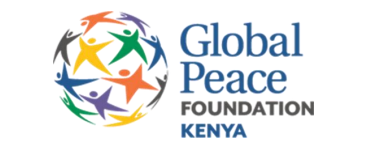Late last year, Global Peace Foundation (GPF) Kenya entered into partnership with Google Kenya to conduct the “Child Online Safety Campaign” in various high schools across the country. This was mainly to create awareness among youth about the risks that come with internet as well as empower them with skills and tools to become responsible internet users.
One year later the campaign has impacted 3,144 students and 1,467 teachers across 170 schools in 16 counties. This was reported during the stakeholders review meeting that was held at the Center for Mathematics Science and Technology Education in Africa. The meeting was attended by various stakeholders from the Ministry of Education, Kenya Girl Guides Association, Kenya Film Classification Board, parents and student beneficiaries of the Child Online Safety Campaign from various high schools among them Moi Forces Academy, Friends School Kaimosi and Machakos High School.
In her presentation, Ms. Caroline Anne Amollo, Director Education Initiatives, Global Peace Foundation Kenya, documentated on the outcomes of the 2016 child online safety campaign. The report highlighted important findings on how young people engage with internet – a huge percentage of youth spend up to 6 hours on internet – on a daily basis. The results painted more negative aspects of youth online behavior such as addiction to music, movies, games which present online risks such as harassment/cyber bullying and sexual solicitation.
“57% of the students had been exposed to nudity in music and videos while online. This shows that students are accessing explicit content not only through pornographic materials but also through music and videos with explicit content. While online, 34.4% of the students are on social media, 30.4% conduct research, while a small number of about 1.6% never go online. This shows that there is need for more sensitization to the students to understand that there is more to the internet that just social media”, Ms. Caroline Amollo highlighted.
On the contrary, a very small percentage of youth are aware of the positive aspects of Internet for example it’s potential for learning and research.
“My daughter has a blog with over 3,000 followers where she tackles cases cyber bullying and what to do if you are bullied online. This is one of the positive impacts that the internet has done for my daughter.” Said Ms. Catherine Kabuku, mother to Wangeci a webranger from Precious Blood, Riruta.
Kenya Film Classification Board (KFCB), recommended the need for synchronizing efforts done with various stakeholders to ensure safety of the youth while online.
“KFCB is running the media literacy program across various high schools and universities. So far, the program has reached 12,000 university and high school students. Through the media literacy program, we can create more impact by embedding online safety element in the ongoing media literacy program so as to reach a wider scope, “said Charity Macharia, Communications Officer at KFCB.
Students on the other end appreciated the efforts by Google Kenya and other stakeholders in equipping them with the necessary tools to become online rangers. They reported on positive impact of the training and how they can safely navigate the online space. The use of strong passwords to ensure privacy, and prevent unauthorized access, use of safe search to prevent access to explicit and adult content and not being victims of cyber tricks were among the lessons learnt by the students.
The ministry of Education represented by Mr. Hesbon Nyagaka, recognized the importance of online safety especially now that the government is giving out laptops to class one pupils. Mr. Nyagaka applauded the private sector for its efforts in ensuring that students are responsible users of the internet and recommended the need for public, private partnership and integration of online safety in the curriculum.
The day culminated with closing remarks from Mr. Stephen Njoroge, Director CEMASTEA. “It is the responsibility of every stakeholder to ensure that our youth realize the importance of the internet and make good use of it. Let us invest in nurturing the offline character because that will determine the online character of our youth. Teachers and parents need more training the tools they can use to guard the young ones in the online space,” he said “Teachers should know which activities develop values in students because developing character and values in students is a continuous process,” he concluded.
As a way forward, GPF Kenya will seek closer collaboration with Kenya Girl Guides Association to train girl guides to become online rangers, and also through KFCB and its network conduct advocacy for the campaign and push for media visibility.
Finally, GPF will engage the Ministry of Education through the Kenya Institute of Curriculum Development (KICD) to integrate Child Online Safety in the current education curriculum and also involve parents/guardians in the campaign.
